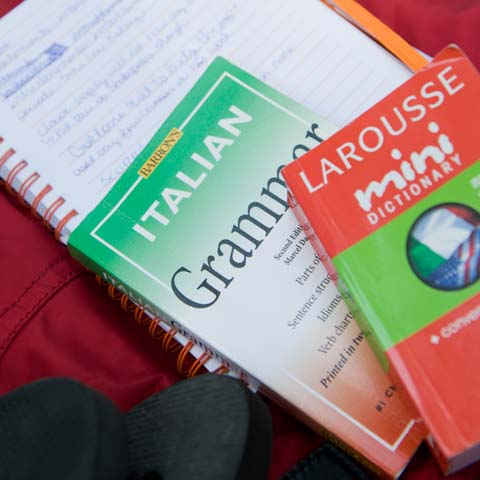The Comprehensive Guide to IB Arabic A Language and Literature
Introduction
Welcome to the comprehensive guide to IB Arabic A Language and Literature! The International Baccalaureate (IB) Arabic A Language and Literature course offers students the opportunity to develop their language skills while exploring a range of Arabic literary works. In this guide, we will provide you with a detailed overview of the IB Arabic A Language and Literature course, its components, assessment criteria, and tips to excel in the course and achieve success on the IB exam.
Overview of IB Arabic A Language and Literature
IB Arabic A Language and Literature is a course that focuses on the development of language skills while exploring Arabic literary works. Through the study of various genres, students enhance their understanding of the Arabic language and literature and explore how language is used to convey meaning and shape cultural perspectives.
Course Components
The IB Arabic A Language and Literature course consists of three main components:
-
Language in Cultural Context: Students explore the relationship between language, culture, and identity. They examine how language is influenced by and reflects cultural norms, values, and practices.
-
Texts and Contexts: Students analyze and interpret a range of Arabic literary works, including novels, poetry, plays, and non-fiction texts. They consider the historical, social, and cultural contexts in which these texts were produced.
-
Literary Genres: Students study different literary genres and analyze the stylistic features, themes, and techniques employed by authors. They develop an appreciation for the diversity of literary expression in the Arabic language.
Assessment Criteria
The IB Arabic A Language and Literature course is assessed using the following criteria:
-
Language and Cultural Context: Students demonstrate an understanding of the relationship between language and culture. They analyze how cultural perspectives are conveyed through language use.
-
Analysis and Evaluation: Students critically analyze and interpret literary texts, identifying and evaluating the author's use of language, style, and literary devices. They explore the multiple layers of meaning in the texts.
-
Language and Style: Students demonstrate an ability to use language effectively, employing appropriate vocabulary, grammar, and syntax. They display a strong command of Arabic language conventions.
-
Organization and Development: Students present their ideas in a logical and coherent manner, structuring their responses effectively. They develop their arguments and support them with evidence from the texts.
Developing Language Skills
Developing language skills is a crucial aspect of the IB Arabic A Language and Literature course. Here are some tips to enhance your language proficiency:
-
Reading Practice: Read a wide range of Arabic texts, including literature, newspapers, magazines, and online articles. Pay attention to vocabulary, sentence structure, and idiomatic expressions to expand your language repertoire.
-
Writing Practice: Write regularly in Arabic, focusing on different genres and styles. Practice descriptive writing, argumentative essays, and creative pieces to develop your writing skills and fluency.
-
Listening and Speaking: Engage in conversations with native Arabic speakers, watch Arabic movies and TV shows, and listen to Arabic podcasts or radio programs. This will help you improve your listening comprehension and oral communication skills.
Analyzing Literary Texts
Analyzing literary texts is a central aspect of the IB Arabic A Language and Literature course. Here are some strategies to effectively analyze Arabic literary works:
-
Close Reading: Carefully read the text, paying attention to the author's choice of words, imagery, symbolism, and themes. Take notes on significant passages and make connections between different elements of the text.
-
Contextual Analysis: Consider the historical, social, and cultural context in which the text was written. Analyze how these factors shape the author's perspective and influence the themes and messages of the work.
-
Identifying Literary Devices: Identify and analyze the literary devices used by the author, such as metaphors, similes, alliteration, and irony. Examine how these devices contribute to the overall meaning and impact of the text.
-
Interpretation: Develop your own interpretation of the text, supported by evidence from the text itself. Consider different perspectives and explore the underlying messages and themes conveyed by the author.
Developing Writing Skills
Developing strong writing skills is essential for success in the IB Arabic A Language and Literature course. Here are some tips to improve your writing:
-
Practice Essay Writing: Write practice essays on various topics, using appropriate vocabulary, sentence structure, and grammar. Pay attention to organization, coherence, and the development of your arguments.
-
Use Literary Devices: Incorporate literary devices into your writing to enhance its impact. Experiment with metaphors, imagery, and other literary techniques to add depth and creativity to your compositions.
-
Seek Feedback: Share your writing with your teacher or peers and ask for constructive feedback. Use this feedback to identify areas for improvement and make revisions to strengthen your writing.
Preparing for the IB Exam
To prepare for the IB Arabic A Language and Literature exam, consider the following strategies:
-
Review Past Papers: Familiarize yourself with the format and style of the IB exam by reviewing past papers. Practice answering questions within the allocated time and become familiar with the assessment criteria.
-
Create Study Guides: Summarize key concepts, literary terms, and themes in study guides. These guides will serve as a quick reference during your exam preparation.
-
Collaborate with Peers: Form study groups with classmates to discuss literary works, share insights, and practice analyzing texts together. Engaging in collaborative learning can deepen your understanding and provide different perspectives.
Tips for Success
Here are some additional tips to excel in the IB Arabic A Language and Literature course:
-
Read Widely: Read a diverse range of Arabic literary works to broaden your understanding of the language and different literary styles.
-
Engage in Discussions: Participate actively in class discussions, sharing your ideas, interpretations, and insights. Engaging in thoughtful discussions can deepen your understanding of the texts.
-
Develop Time Management Skills: Plan your study time effectively, allocating dedicated time for reading, writing, and revising. Stay organized and create a study schedule to ensure you cover all the required materials.
-
Seek Support: Don't hesitate to seek help from your teacher, classmates, or tutors if you need assistance. They can provide additional guidance, clarify concepts, and offer support throughout your IB journey.
FAQs
-
What are the required texts for the IB Arabic A Language and Literature course? The required texts vary depending on the year and exam session. Consult the official IB curriculum materials or speak to your teacher for the most up-to-date information on the required texts.
-
Can I study Arabic A Language and Literature if Arabic is not my first language? Yes, the IB Arabic A Language and Literature course is open to both native and non-native Arabic speakers. It is designed to develop language skills and appreciation for Arabic literature.
-
How can I improve my vocabulary in Arabic? To improve your vocabulary, read extensively in Arabic, use a dictionary or vocabulary-building apps, and practice incorporating new words into your writing and speaking.
-
Is it necessary to memorize quotes from literary works for the IB exam? While it's not necessary to memorize quotes word-for-word, it is helpful to have a good understanding of key passages and be able to reference them in your essays to support your arguments.
Conclusion
Congratulations on embarking on the IB Arabic A Language and Literature course! This comprehensive guide has provided you with an overview of the course components, assessment criteria, and strategies to excel in the course and the IB exam. Remember to read widely, practice your language skills, and engage critically with the Arabic literary works you encounter. With dedication and perseverance, you can achieve success in the IB Arabic A Language and Literature course and develop a deep appreciation for the Arabic language and its rich literary heritage.

 By
By


